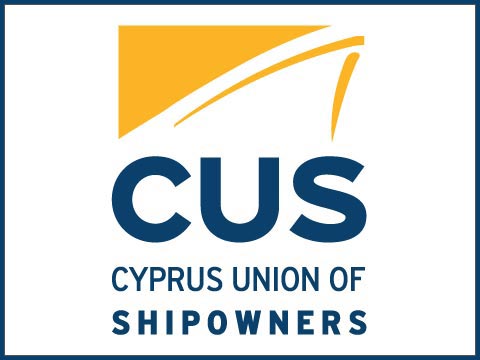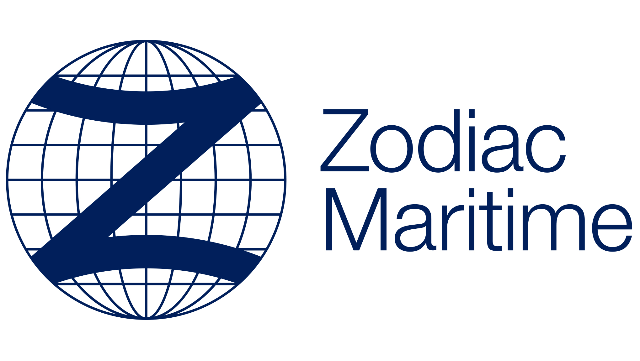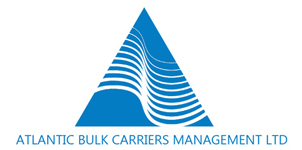MASTERS
MSc in Shipping Management
Navigate your future
DURATION
Full Time (12m) & Part Time (24m) / Evening classes
Application Deadline
Rolling Admission | Upcoming Deadline: February 27, 2026
START DATE
September 2026
FEES
€ 12,500
Overview
More than 90% of the World’s trade is transported by ships. Shipping is one of the most important sectors in the global economy.
Moreover, Greece is a country with a long standing tradition in shipping and the home of more than 700 shipping companies: the Greeks control the biggest fleet in the world in terms of both value and size. As a result there is a need for shipping graduates with advanced management skills and knowledge.
The MSc in Shipping Management program is designed to transform young graduates and early career professionals into seasoned professionals equipped with the skills, knowledge and expertise required for a successful career in the demanding and highly competitive world of shipping. A specialized program, providing students with a holistic and in depth knowledge of the most important issues in modern commercial shipping.
Key features of the program
- Weekday classes between 18:00 – 22:00, twice or three times per week on average;
- A 12-month program (24-month program for part-time mode);
- 12 core modules and 3 workshops;
- Assessment: group reports/presentations, case study analysis, mid-term tests, final exams;
- Dissertation or Internship or Coursework (3 courses).
The MSc in Shipping Management is Designed for:
- Recent graduates looking for a career within the shipping industry;
- Shipping professionals who wish to enrich their know-how and improve their professional status;
- Officers of the Merchant Marine serving both at sea & onshore;
- Members of family businesses in shipping preparing to take on increasing responsibility in their companies;
- Young professionals with the determination to enter the shipping industry.
You may find here more information about the Program's Intended Learning Outcomes.
Current Student Profile
AGE
26
average in years
WORK EXPERIENCE
2
average in years
MALE
57%
FEMALE
43%
Highlights
A specialized shipping program: The MSc in Shipping Management provides a thorough and deep understanding of all the major theories and practices that can be encountered in a modern shipping company.
Academic rigor with practical know-how: The program balances academic rigor with practical experience in order to serve the needs of tomorrow’s ship managers in the most effective ways.
Internship opportunities: For eligible students with leading companies in the shipping industry. Alba internship shipping network includes some of the most well-known shipping companies.
High rates of employment: More than 90% of our graduates are in work 6 months after graduation
Ideal location: Offered in Greece, a country with a long-standing tradition in shipping.
International Recognition:
Accredited by the Institute of Chartered Shipbrokers (ICS), the only internationally recognized professional body in the commercial maritime arena. Graduates of the program are eligible for three exemptions from the ICS qualification.
Member of BIMCO, the world’s largest direct-membership organization for shipowners, charterers, shipbrokers and agents. All Alba shipping students have access to BIMCO, an organization that brings shipping people together to work for shared goals, and receive discounts on several BIMCO products.

Links to the Industry and Support: Strongly supported by the Greek shipping community: significant networking opportunities and participation in activities such as educational field trips abroad/cruise trips, visits to shipping companies, ports and commercial vessels. ALBA is a not-for-profit educational association of 89 Greek corporations including leading shipping companies like, Arcadia, Navios, Paragon, Star Bulk, Thenamaris and Top Ships.
Moreover Alba shipping programs are supported by WISTA Hellas, The Hellenic Shipbrokers Association (HSA), The International Propeller Club (Piraeus), the Master's and Mates Union of the Greek Merchant Marine, the International Community for Maritime and Ocean Professionals (SNAME) and the Green Award, offering several partial scholarships and financial aid.

Advisory Board
Advisory Board
The MSc in Shipping Management Business Advisory Committee (BAC) comprises of a select group of professionals from Greece and abroad and ensures the practical aspects of the program and that the program’s content is in line with the most recent developments in the shipping industry.
The BAC consists of:

George Achniotis
CFO NAVIOS MARITIME HOLDINGS


Stamatis Bourboulis
General Manager - EURONAV Ship Management (Hellas) Ltd


Anna Bredima
Senior Policy Advisor on European Affairs/ Cyprus Union of Shipowners


Kostas Kanellopoulos
Managing Director NEREUS SHIPPING S.A.


George Karageorgiou
President/CEO OLYMPIC SHIPPING AND MANAGEMENT S.A.


John Kokarakis
Vice President Technology and Business Development BUREAU VERITAS


Ilias Ladas
DPA, HR and Training Manager DANAOS SHIPPING CO LTD


Dimitrios Mattheou
Managing Director ARCADIA SHIPMANAGEMENT CO LTD


Vassilis Papageorgiou
Vice Chairman TSAKOS Group (1st deputy: Venetia Kallipolitou Deputy Managing Director Tsakos Columbia Shipmanagement, 2nd deputy: Ioannis Glykis Operations Marine Manager Tsakos Columbia Shipmanagement).


Dimitris Patrikios
CEO, KYKLADES MARITIME CORPORATION


John Platsidakis
Managing Director, ANANGEL MARITIME SERVICES INC, Honorary Chairman INTERCARGO.


Helen Polychronopoulou
President of HEMEXPO


George Skrimizeas
CEO, NORTUS INVESTMENT, President EEDE

Stratos Tsalamanios
Co-CEO MYLAKI SHIPPING AGENCY LTD and SEAVEN TANKER & DRY MANAGEMENT INC.

Kostas Vlachos
COO CONSOLIDATED MARINE MANAGEMENT INC.


Panos Zachariadis
Technical Director ATLANTIC BULK CARRIERS MANAGEMENT LTD

The MSc in Shipping Management program designed with the support of an international group of renowned academics that consists the Academic Advisory Committee (AAC) of the program.
The AAC consists of:

Kevin Culliname
Professor of Marine Transport & Management, School of Marine Science & Technology, University of Newcastle, UK.

Ernst Frankel
Professor of Ocean Engineering, Emeritus, School of Engineering, Massachusetts Institute of Technology (MIT), USA.

Siri Pettersen Strandenes
Professor, Centre for International Economics and Shipping, Norwegian School of Economics and Business Administration, Norway.

Trevor Heaver
Professor Emeritus, Centre for Transportation Studies, University of British Columbia, Canada.

Anastasios Perakis
Associate Professor, SNAME Fellow, Office of Naval Research Distinguished Faculty Fellow, The Boeing Co Welliver Faculty Fellow, Department of Naval Architecture & Marine Engineering, College of Engineering, University of Michigan, USA.
Full time
MSc in Shipping Management Program Total Year Schedule 2026-2027
Total US Credits: 30
The school reserves the right to reexamine the structure of all academic programs and proceed to any necessary changes in the total year schedule.
3rd Period: Internship* (upon availability) OR TWO Modules.
*This is an option provided only to Greek and EU students. According to Greek labor and immigration law, international VISA holder students are not permitted to do an apprenticeship in Greece. Alternatively, they can access global internship opportunities through the international job portals provided by Alba’s Career Office.
You may find the Graduate Academic Calendar 2025–26 here.
1st Period | Fall 2026
Courses
Sea transportation has been an important catalyst of world trade and economic growth. Globalization of the world economy, increased competition and rapid technological change has resulted in lowered transport costs. High volatility in prices, uncertainty, capital concentration and global competition of the shipping markets, have made effective economic skills a requirement for shipping organizations. The aim of this course is to provide the maritime economic principles and theory required for the effective management of a shipping company, which operates in the global competitive shipping environment, under the appropriate policy perspectives. The students will be able to understand the economic organization of the shipping market, to analyse the shipping market cycle and the shipping markets, as well as the supply and demand conditions and the trade patterns in seaborne transportation.
The course outlines general ship characteristics as well as the statutory and commercial rules and guidelines associated with the design and operational profile of ship types. Statutory and class regulations are presented in association to the flag and design criteria related to safe construction of ships. Furthermore, most common ship types and their commercial characteristics are presented. Guidelines associated with the design and operational profile of ship types are mentioned. Technical and vessel voyage elements are presented analytically, with reference to individual vessel types and operation. Ship repair Management and the principles of ship valuation are discussed and analyzed in the class.
This introductory workshop outlines the main principles of writing academic and business assignments. A series of activities are used to develop, extend and enhance analytical and synthetical writing skills. The workshop explains the importance of knowing one’s audience, purpose and subject of written assignment. The sequence of steps in writing effectively is analysed. Prewriting, revising and editing techniques are discussed. The process of conducting a comprehensive literature review is outlined that compares and contrasts relevant studies, in order to create a solid theoretical foundation, upon which one’s own views can be presented and justified. Finally, the importance issue of plagiarism and how to avoid it is discussed.
Ship management is a complex function calling for a variety of skills that will enable the individual to communicate with, understand and supervise a number of very different fields within the company.
The structure of this module follows the structure of a typical shipping company which retains most of its operations in-house. A ground up approach is followed starting with making sure that everything taught stands on a solid theoretical fundament, which in turn calls for a certain degree of familiarity with areas as diverse as ship chartering, post fixture, ship maintenance, classification and upkeep, management of human resources, elements of maritime law and dispute resolution.
While most of the subjects touched upon will be dealt with in greater detail within the MSc program, it is essential that the attending student obtains a clear idea of the greater picture from the outset. A ship manager should be in position not only to understand and evaluate the problems, but also to make decisions, delegate responsibility and ensure the issue is finally resolved in a manner consistent with the company’s rules and within the law.
To this end students will be encouraged to work in teams among themselves, as well as with the instructor, and discuss issues and cases - brought in for analysis.
For a successful career in business, professionals should possess sufficient quantitative skills to help them make informed decisions backed by data analysis and statistical inferences. The course aims to introduce, in an intuitive and rigorous way, the fundamental statistical tools of decision theory under uncertainty. Topics covered include basic statistical principles, probability distributions, inferential statistics (confidence intervals hypothesis testing) and regression. The course combines the theoretical concepts and reasoning with practical examples to help students master the quantitative methods of modern business management. The course also includes an introduction to Excel’s data analysis tool and basic functions.
This is an introductory course on the company’s financial decision-making processes. Corporate financial management describes how corporations create value through their capital allocation decisions. Such decisions include capital budgeting, valuation analysis and financing. The course aims to introduce the quantitative tools and analyses, that managers apply in order to achieve the company’s financial goals.
2nd Period | Winter 2027
Courses
The maritime labor industry is a highly competitive and regulated sector, while the management of multinational crew and the transferability of seafarers from ship to office positions require for advanced human resource management practices. The aim of this course is to provide the principles of managing maritime human resources, both the seagoing and shore-based personnel, considering the today’s market conditions. The course will provide an overview of key concepts related to Crew and Human Resource Management, including Human resource planning in shipping; Recruitment and selection of ship’s and shore- based personnel; Performance evaluation of maritime human resources; Compensation and rewards of seagoing labor and Management of multicultural crews. Further, the course will discuss the profile of the world maritime labor market, selection criteria of the seafarer’s profession that affect retention, outsourcing of manning and the new Maritime Labor Convention (MLC2006).
The course will give an overview of major issues in respect to contemporary State action, supervision and support towards the maritime industry and its cluster. The course instructor(s) will primarily elaborate on the triangular interactions between the Shipping community (ship-owners and mariners), the State and Society. Students will analyze complex policy issues, study governmental as well as interagency processes and explore the conflicts that often arise due to competing interests of various national, regional and international stakeholders in the maritime industry. A detailed examination of relevant instruments and documents will support the comprehension of domestic regulatory frameworks and policies on an international, European and national level. Regulatory examples from several countries will be used in order to compare and contrast national aspirations and strategic visions towards the shipping industry and its activities. All seminars will encourage students to think critically about the theory and practice of maritime politics and how they affect the everyday life of a shipping company and the maritime world at large.
The course enables students to understand the basic concepts of the law relating to shipping, so as to bolster their prospects of professional, commercial or business employment. Notions such as the ship, admiralty jurisdiction, arrest, ship mortgage, maritime lien, marine insurance shall be examined and analysed. Furthermore, it is opted to enhance students’ interpretational skills when examining legal instruments. Finally, students are expected to develop other skills, such as problem solving, legal research, independent study and critical evaluation. Successful students shall demonstrate a satisfactory knowledge of various concepts of shipping law. They should be in a position to apply the relevant law to hypothetical problems, to evaluate critically legal situations and reach reasoned conclusions.
The first part of the course is to introduce students to the issues involved in insuring the various interests that may arise in vessels and their cargoes. The course examines the types of policy available, the legal issues that arise in the placement and claims processes and the risks covered by the standard form of marine insurance wordings available. The second part of the course is to provide the principles of law governing the carriage of goods by sea and admiralty jurisdiction. It further focuses on liability in terms of the cargo transported and claim implications. The aim of the course is to enable students to understand, analyse and critically evaluate the processes which affect a shipping company in relation to marine insurance issues and to the law of carriage of goods by sea.
Due to the fact that the shipping industry is a capital intensive and volatile industry, the course focuses on the critical evaluation of the various financial methods under risky and uncertain situations. The course focuses on the general principles of financial management by ship owning and ship operating companies and the impact economic variables on the financial operations of shipping business organizations. The aim of this course is to give students an appreciation of the problems, issues and alternative methods involved in shipping finance. The end goal is to provide students with the tools necessary to conduct accurate financial analysis for investment purposes in the shipping industry. At the end of the course, the students will be able to develop, appraise, negotiate and choose among alternative investment proposals in shipping.
3rd Period | Spring 2027
Courses
The aim of this course is to provide in-depth and holistic understanding of charter markets, chartering practice and charter party analysis in dry cargo and tanker shipping. Content includes the procedures and practices in chartering merchant ships in the dry cargo and tanker markets, their commercial employment under various forms of chartering and the detailed calculation of financial (freight) performance, voyage planning and lay time estimations. The module provides an in-depth analysis of charter party forms and adopts a legal and commercial perspective to analyze significant clauses and to explain various specialized terms in dry cargo and chartering contracts. The market structure of dry cargo and tanker industries are also analyzed and an overview of the practitioners involved (brokers, owners, charterers) is provided as are the sources of data and information required to initiate, negotiate, agree, execute and assess a successful charter party contract in the dry bulk and tanker markets.
The purpose of this one-day workshop is to familiarize students to the theoretical aspects of maritime accounting and cover in detail the most important maritime accounting issues. The overall aim of this course is to give students an appreciation of the problems, issues and alternative methods involved in the accounting management of shipping companies. The workshop focuses on the critical evaluation of the various accounting methods used in modern shipping practice. The goal is to provide students with the tools necessary to conduct accurate accounting analysis in a maritime organization. At the end of the course, students will be able to develop, appraise, and choose among alternative accounting methods in shipping.
Understanding the ethical basis of human behaviour is of fundamental importance for building commitment to organizational goals and for imparting integrity and a sense of the common good in organizational members. The course examines a broad array of matters relating to ethics, including: individual and organizational obstacles to ethics; ethics information processing methods and judging theories; an action-learning framework for ethics leadership; adversarial win-lose ethics methods; integrative win-win ethics methods; dialogic transcendent ethics method; reflection and developing personal and contingency ethics leadership approaches; developing on ethics leadership action-learning plan. The course focuses also on sustainability, corporate social responsibility and corporate accountability with further emphasis placed on business strategies that aim to create long term value and a positive environmental, social and economic impact. Actionable knowledge is achieved by applying theory in real life situations through critical analysis and debating on prominent cases and in class discussions on current trends and developments on sustainable business activities.
AND
Courses
The Dissertation is an independent research project that allows students to explore a topic of personal interest within a faculty member’s area of expertise. Throughout the process, students will develop essential research skills, including designing a detailed research plan, conducting a comprehensive literature review, identifying key research questions, and transforming them into empirical inquiries. They will learn to justify and apply appropriate research methodologies, analyze financial or social data, and synthesize their findings into a well-structured report. The final dissertation will include a literature review, research questions, methodology justification, data analysis, and a discussion of findings in relation to existing research and methodological considerations.
OR
Courses
An Internship brings together the academic with the business world, providing benefits both to students and to companies. It has the status of a course, hence it is an obligatory requirement for the fulfillment of the M.Sc. Degree, it carries credits and it is graded. The expected duration is three (3) months.
The benefits for students include the opportunity for the blending of academic and on-the-job learning; the use of the explicit knowledge gained during the program, the attainment of tacit knowledge, the development and diversification of skills, the acquisition of work experience, the identification and/or refinement of career goals, the creation and/or development of a professional network. The benefits for companies include the opportunity to meet some company needs with highly qualified and motivated students, the identification of talent for potential future employment, the enrichment of current perspectives and practices with the intern’s novel ideas, the enhancement of social responsibility activities.
OR
Courses
Approximately 90% of non-bulk cargo worldwide is moved by containers stacked on transport ships. Containerization has brought a big change in the way trade is done. It has greatly reduced the expense of international trade and has increased its speed, especially of consumer goods and commodities. Liner shipping is the service of transporting goods by means of high-capacity, ocean-going ships that transit regular routes on fixed schedules. Meanwhile, seaports play a tremendous role in the transportation chain. This course intends to give an insight of the liner shipping industry and the way that seaports operate.
AND
Courses
The effective and daily strategic management of companies operating in the shipping service sector is of the most paramount importance. Managers, thus, are in need of strategic making skills as ever. Strategy is the set of objectives and policies that set to define how a shipping service provider positions itself to gain competitive advantage and increase returns for its owner and stakeholders. Two questions are of importance, then: “What business should we participate in” and “How should we compete?” In answering these questions, the external environment and the internal company resources and capabilities take a central role. Through case studies and assignments, participants learn to use tools for analyzing, creating and, communicating strategies in the shipping industry.
Part Time
MSc in Shipping Management Program Total Year Schedule 2026 -2028
US Credits: 30
The School reserves the right to reexamine the structure of all academic programs and proceed to any necessary changes in the total year schedule.
You may find the Graduate Academic Calendar 2025–26 here.
1st Period | Fall 2026
Courses
The course outlines general ship characteristics as well as the statutory and commercial rules and guidelines associated with the design and operational profile of ship types. Statutory and class regulations are presented in association to the flag and design criteria related to safe construction of ships. Furthermore, most common ship types and their commercial characteristics are presented. Guidelines associated with the design and operational profile of ship types are mentioned. Technical and vessel voyage elements are presented analytically, with reference to individual vessel types and operation. Ship repair Management and the principles of ship valuation are discussed and analyzed in the class.
This introductory workshop outlines the main principles of writing academic and business assignments. A series of activities are used to develop, extend and enhance analytical and synthetical writing skills. The workshop explains the importance of knowing one’s audience, purpose and subject of written assignment. The sequence of steps in writing effectively is analysed. Prewriting, revising and editing techniques are discussed. The process of conducting a comprehensive literature review is outlined that compares and contrasts relevant studies, in order to create a solid theoretical foundation, upon which one’s own views can be presented and justified. Finally, the importance issue of plagiarism and how to avoid it is discussed.
This is an introductory course on the company’s financial decision-making processes. Corporate financial management describes how corporations create value through their capital allocation decisions. Such decisions include capital budgeting, valuation analysis and financing. The course aims to introduce the quantitative tools and analyses, that managers apply in order to achieve the company’s financial goals.
For a successful career in business, professionals should possess sufficient quantitative skills to help them make informed decisions backed by data analysis and statistical inferences. The course aims to introduce, in an intuitive and rigorous way, the fundamental statistical tools of decision theory under uncertainty. Topics covered include basic statistical principles, probability distributions, inferential statistics (confidence intervals hypothesis testing) and regression. The course combines the theoretical concepts and reasoning with practical examples to help students master the quantitative methods of modern business management. The course also includes an introduction to Excel’s data analysis tool and basic functions.
2nd Period | Winter 2027
Courses
The course enables students to understand the basic concepts of the law relating to shipping, so as to bolster their prospects of professional, commercial or business employment. Notions such as the ship, admiralty jurisdiction, arrest, ship mortgage, maritime lien, marine insurance shall be examined and analysed. Furthermore, it is opted to enhance students’ interpretational skills when examining legal instruments. Finally, students are expected to develop other skills, such as problem solving, legal research, independent study and critical evaluation. Successful students shall demonstrate a satisfactory knowledge of various concepts of shipping law. They should be in a position to apply the relevant law to hypothetical problems, to evaluate critically legal situations and reach reasoned conclusions.
The first part of the course is to introduce students to the issues involved in insuring the various interests that may arise in vessels and their cargoes. The course examines the types of policy available, the legal issues that arise in the placement and claims processes and the risks covered by the standard form of marine insurance wordings available. The second part of the course is to provide the principles of law governing the carriage of goods by sea and admiralty jurisdiction. It further focuses on liability in terms of the cargo transported and claim implications. The aim of the course is to enable students to understand, analyse and critically evaluate the processes which affect a shipping company in relation to marine insurance issues and to the law of carriage of goods by sea.
The maritime labor industry is a highly competitive and regulated sector, while the management of multinational crew and the transferability of seafarers from ship to office positions require for advanced human resource management practices. The aim of this course is to provide the principles of managing maritime human resources, both the seagoing and shore-based personnel, considering the today’s market conditions. The course will provide an overview of key concepts related to Crew and Human Resource Management, including Human resource planning in shipping; Recruitment and selection of ship’s and shore- based personnel; Performance evaluation of maritime human resources; Compensation and rewards of seagoing labor and Management of multicultural crews. Further, the course will discuss the profile of the world maritime labor market, selection criteria of the seafarer’s profession that affect retention, outsourcing of manning and the new Maritime Labor Convention (MLC2006).
3rd Period | Spring 2027
Courses
The purpose of this one-day workshop is to familiarize students to the theoretical aspects of maritime accounting and cover in detail the most important maritime accounting issues. The overall aim of this course is to give students an appreciation of the problems, issues and alternative methods involved in the accounting management of shipping companies. The workshop focuses on the critical evaluation of the various accounting methods used in modern shipping practice. The goal is to provide students with the tools necessary to conduct accurate accounting analysis in a maritime organization. At the end of the course, students will be able to develop, appraise, and choose among alternative accounting methods in shipping.
Understanding the ethical basis of human behaviour is of fundamental importance for building commitment to organizational goals and for imparting integrity and a sense of the common good in organizational members. The course examines a broad array of matters relating to ethics, including: individual and organizational obstacles to ethics; ethics information processing methods and judging theories; an action-learning framework for ethics leadership; adversarial win-lose ethics methods; integrative win-win ethics methods; dialogic transcendent ethics method; reflection and developing personal and contingency ethics leadership approaches; developing on ethics leadership action-learning plan. The course focuses also on sustainability, corporate social responsibility and corporate accountability with further emphasis placed on business strategies that aim to create long term value and a positive environmental, social and economic impact. Actionable knowledge is achieved by applying theory in real life situations through critical analysis and debating on prominent cases and in class discussions on current trends and developments on sustainable business activities.
4th Period | Fall 2027
Courses
Sea transportation has been an important catalyst of world trade and economic growth. Globalization of the world economy, increased competition and rapid technological change has resulted in lowered transport costs. High volatility in prices, uncertainty, capital concentration and global competition of the shipping markets, have made effective economic skills a requirement for shipping organizations. The aim of this course is to provide the maritime economic principles and theory required for the effective management of a shipping company, which operates in the global competitive shipping environment, under the appropriate policy perspectives. The students will be able to understand the economic organization of the shipping market, to analyse the shipping market cycle and the shipping markets, as well as the supply and demand conditions and the trade patterns in seaborne transportation.
Ship management is a complex function calling for a variety of skills that will enable the individual to communicate with, understand and supervise a number of very different fields within the company. The structure of this module follows the structure of a typical shipping company which retains most of its operations in-house. A ground up approach is followed starting with making sure that everything taught stands on a solid theoretical fundament, which in turn calls for a certain degree of familiarity with areas as diverse as ship chartering, post fixture, ship maintenance, classification and upkeep, management of human resources, elements of maritime law and dispute resolution. While most of the subjects touched upon will be dealt with in greater detail within the MSc program, it is essential that the attending student obtains a clear idea of the greater picture from the outset. A ship manager should be in position not only to understand and evaluate the problems, but also to make decisions, delegate responsibility and ensure the issue is finally resolved in a manner consistent with the company’s rules and within the law.To this end students will be encouraged to work in teams among themselves, as well as with the instructor, and discuss issues and cases - brought in for analysis.
5th Period | Winter 2028
Courses
The course will give an overview of major issues in respect to contemporary State action, supervision and support towards the maritime industry and its cluster. The course instructor(s) will primarily elaborate on the triangular interactions between the Shipping community (ship-owners and mariners), the State and Society. Students will analyze complex policy issues, study governmental as well as interagency processes and explore the conflicts that often arise due to competing interests of various national, regional and international stakeholders in the maritime industry. A detailed examination of relevant instruments and documents will support the comprehension of domestic regulatory frameworks and policies on an international, European and national level. Regulatory examples from several countries will be used in order to compare and contrast national aspirations and strategic visions towards the shipping industry and its activities. All seminars will encourage students to think critically about the theory and practice of maritime politics and how they affect the everyday life of a shipping company and the maritime world at large.
Due to the fact that the shipping industry is a capital intensive and volatile industry, the course focuses on the critical evaluation of the various financial methods under risky and uncertain situations. The course focuses on the general principles of financial management by ship owning and ship operating companies and the impact economic variables on the financial operations of shipping business organizations. The aim of this course is to give students an appreciation of the problems, issues and alternative methods involved in shipping finance. The end goal is to provide students with the tools necessary to conduct accurate financial analysis for investment purposes in the shipping industry. At the end of the course, the students will be able to develop, appraise, negotiate and choose among alternative investment proposals in shipping.
6th Period | Spring 2028
Courses
The aim of this course is to provide in-depth and holistic understanding of charter markets, chartering practice and charter party analysis in dry cargo and tanker shipping. Content includes the procedures and practices in chartering merchant ships in the dry cargo and tanker markets, their commercial employment under various forms of chartering and the detailed calculation of financial (freight) performance, voyage planning and lay time estimations. The module provides an in-depth analysis of charter party forms and adopts a legal and commercial perspective to analyze significant clauses and to explain various specialized terms in dry cargo and chartering contracts. The market structure of dry cargo and tanker industries are also analyzed and an overview of the practitioners involved (brokers, owners, charterers) is provided as are the sources of data and information required to initiate, negotiate, agree, execute and assess a successful charter party contract in the dry bulk and tanker markets.
AND
Courses
The Dissertation is an independent research project that allows students to explore a topic of personal interest within a faculty member’s area of expertise. Throughout the process, students will develop essential research skills, including designing a detailed research plan, conducting a comprehensive literature review, identifying key research questions, and transforming them into empirical inquiries. They will learn to justify and apply appropriate research methodologies, analyze financial or social data, and synthesize their findings into a well-structured report. The final dissertation will include a literature review, research questions, methodology justification, data analysis, and a discussion of findings in relation to existing research and methodological considerations.
OR
Courses
An Internship brings together the academic with the business world, providing benefits both to students and to companies. It has the status of a course, hence it is an obligatory requirement for the fulfilment of the M.Sc. Degree, it carries credits and it is graded. The expected duration is three (3) months.
The benefits for students include the opportunity for the blending of academic and on-the-job learning; the use of the explicit knowledge gained during the program, the attainment of tacit knowledge, the development and diversification of skills, the acquisition of work experience, the identification and/or refinement of career goals, the creation and/or development of a professional network. The benefits for companies include the opportunity to meet some company needs with highly qualified and motivated students, the identification of talent for potential future employment, the enrichment of current perspectives and practices with the intern’s novel ideas, the enhancement of social responsibility activities.
OR
Courses
Approximately 90% of non-bulk cargo worldwide is moved by containers stacked on transport ships. Containerization has brought a big change in the way trade is done. It has greatly reduced the expense of international trade and has increased its speed, especially of consumer goods and commodities. Liner shipping is the service of transporting goods by means of high-capacity, ocean-going ships that transit regular routes on fixed schedules. Meanwhile, seaports play a tremendous role in the transportation chain. This course intends to give an insight of the liner shipping industry and the way that seaports operate.
AND
Courses
The effective and daily strategic management of companies operating in the shipping service sector is of the most paramount importance. Managers, thus, are in need of strategic making skills as ever. Strategy is the set of objectives and policies that set to define how a shipping service provider positions itself to gain competitive advantage and increase returns for its owner and stakeholders. Two questions are of importance, then: “What business should we participate in” and “How should we compete?” In answering these questions, the external environment and the internal company resources and capabilities take a central role. Through case studies and assignments, participants learn to use tools for analyzing, creating and, communicating strategies in the shipping industry.
Faculty
The program is taught by a distinguished mix of global academics and seasoned industry leaders, including resident faculty and visiting experts with extensive research backgrounds.
Course Faculty

Iliana Christodoulou-Varotsi

Nikos Panagiotopoulos
Career
Through the MSc in Shipping Management program, you will:
- Acquire an in depth knowledge of the concepts and the processes involved in the management of a shipping company;
- Become familiar with technical terms and particularities of ocean-going vessels;
- Be able to identify and discuss legal issues which rise in international transport transactions;
- Become up to date with the latest trends and issues in the shipping industry and be able to evaluate their impact on it;
- Understand the sources of risk that modern shipping companies face and identify the range of company strategies available in the context of industry constraints;
- Develop global viewpoint and a critical way of thinking.
Scholarships
You can secure pre-approval of your Scholarship, before you apply for admission to the MBA or MSc program of your choice.
Named Scholarships
Request a brochure
Admission Requirements
To be considered for admission, candidates must:
- Hold a bachelor degree; - Provide evidence of excellent command of the English language;
- GMAT (Focus Edition) test is optional unless the Academic Committee requires the applicant to take it: in any case, scores of 515 or more (GRE >155) can strengthen your application and help you secure a merit scholarship.
Candidates must submit:
- The completed application form, including one recent photograph in jpeg format;
- Two letters of recommendation, in Greek or in English language;
- Official academic transcripts as well as certified copies of degrees from each undergraduate, graduate or professional degree earned;
- Proof of competence in the English language (unless schooled in English): Proficiency (Cambridge Proficiency, Michigan Proficiency, MSU Proficiency), or TOEFL, or IELTS, or Duolingo English Test;
- Three essays, as indicated in the Application form;
- Receipt of the non-refundable application fee's [€60] deposit.
Click here to download the details for admission.
For details on academic policy, course credit policy, fee policy, and rules for student conduct, please refer to the Student Handbook .
Additionally, the School's Students Code of Conduct can be found here.





















